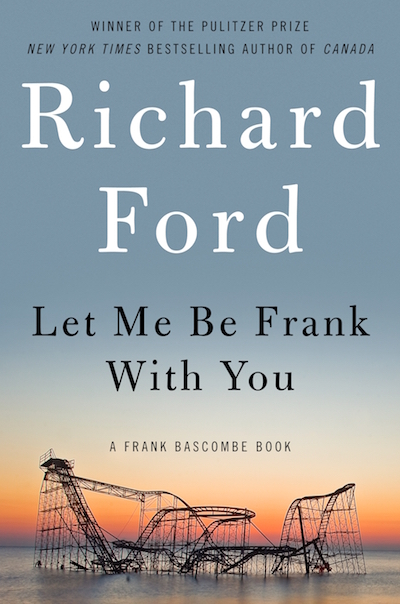
by jphilo | Feb 5, 2015 | Three Thoughts for Thursday

- The sun’s been hanging around until almost 6 PM lately. Don’t say that too loudly when you’re outdoors. We don’t want to scare it away.
- Happiness is when your mom’s only living sister and her husband, two dear people who have been part of your life since forever, call and say, “Don’t you and your sister and brother beat yourselves up for moving your mom to assisted living. You did everything you could for her for many years. Remember that.”
- I finished Lila by Marilynne Robinson a couple weeks ago and thought it was one of the best books I’ve read in a good long while. Then I read Let Me Be Frank With You by Richard Ford and thought it was one of the best books I’ve read in a good long while. What’s one of the best books you’ve read in a good long while?

by jphilo | Mar 30, 2009 | Reviews

Home is Marilynne Robinson’s second book about in a small Iowa town. Her Pulitzer Prize-winning first book, Gilead, bears the name of the fictional town populated with characters as ordinary and flawed as all of us. But the beauty of Robinson’s language and her love for those she writes about elevates their ordinary lives and their flawed relationships into a graceful dance.
In Home, the author makes Jack Boughton, a minor player in Gilead, the central character. Reverend Ames, the previous story’s main character, is given a minor, crucial role. The story is told through the eyes of thirty-eight-year-old Glory, Jack’s youngest sister, who has come home to heal from a love affair gone wrong and care for Robert Boughton, her dying father. Jack is the prodigal son, a charming scamp since birth and a hopeless alcholic, who comes home for the first time in twenty years, to see his father.
The action is as slow as a lazy Iowa summer, and the characters are as rich, satisfying and fleeting as sweet corn in July. Best of all, Robinson takes the aspects of the Christian faith most difficult to reconcile with the realities of life – suffering, broken relationship, bondage to sinful, self-destructive behavior – and through her flawed characters reveals the unconditional love of God.
Home is not a page-turner. Read it slowly. Sadly satisfying and best read with plenty of tissues handy, you won’t read the last page and close the book with a happy sigh. Instead, you’ll ponder why a book so sad and haunting ends as it does. And you’ll ponder why it brings such comfort to your soul.

by jphilo | Mar 13, 2009 | Family

Hiram, my husband, had a birthday last Sunday. He’s fifty-three, as I will be in a few months. We’ve reached that age where people look at our wedding pictures and say things like, “Wow, Hiram, you had a lot of hair!” or “Jolene, you were so…young,” or some other exclamation that requires the speaker remove a foot from the mouth.
Our trip to California was his birthday present and he says it was a great one. We’ve been married for thirty-one years, so I could have predicted the reasons he enjoyed himself: jogging on the beach every morning, listening to the stories the elderly relative on my side of the family told, fixing a kitchen drawer for the same relative, and the engrossing tour of the Midway, a retired aircraft carrier. In fact when I couldn’t find him on the carrier, I knew right where to look. He was front and center at the “Ejection Seat Theater,” captivated by both the movie and his ejection seat.
In all the important ways, Hiram hasn’t changed at all. And when I look at his college pictures – with all his sun-blond hair and without glasses – I see him as he was then and as he is now. I have no words to explain how the passage of time has changed him (and me) without changing us at all. But one of my favorite authors, Marilynne Robinson, says it perfectly in her new novel, Home.
The main character, Glory, describes her elderly father and his lifelong friend as they tell old stories and play checkers. “The joke seemed to be that once they were very young and now they were very old, and that they had been the same day after day and were somehow at the end of it all so utter changed.”
Robinson’s words describe Hiram, a man of few words, so beautifully. “…the same day after day and…somehow at the end of it all so utterly changed.” I can’t wait to finish her book or to watch my husband’s unchanging transformation during the rest of our lives together. Between the two of them, there will be words enough to keep me happy for a long time.




